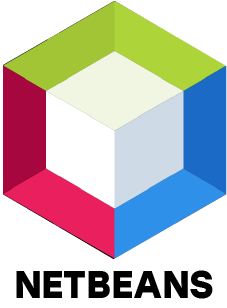The Java class contains a basic to a higher level, After the training in the IT industry, we provide 100% placement assistance. Onward Academy is the Best Java Developer Computer Training Institute for students who have the expertise to work with Live PROJECT. An enterprise MNCs. The Java Course in India, starts with Core Java, which equips students with the basic Java element. In order to grasp how Java may be utilized in the practice world our skilled trainer's aid students to undertake modest projects. The course starts with Core Java, which equips students with the basic Java element. For big IT organisations worldwide, Java is the most chosen alternative. However, if you are to live up to changing demands of the IT sector and make a difference, you must have the skills to become a Java professional
Additional Info
Why do you choose java?
Java is a simple, legible programming language used by thousands of developers in millions of devices used by billions of people across the world. Since last year, the number of job openings for Java specialists has increased dramatically. The reason for this could be the rising Android market. Java is used in the development of all native Android applications. Even though other programming languages are gaining popularity, Java continues to be one of the most popular. Java 9 is set to be released in the next months, and demand for it is expected to skyrocket.
Java is an object-oriented programming language that simplifies the development process for developers and programmers. It can be used to create cross-platform programmes and instal them.Java technology is the most extensively used software platform for application development today, whether it is client-side or server-side.
Why did you choose Java?
- It's a free and open platform.
- It has a user-friendly application programming interface.
- It can be used on a variety of platforms.
- It allows you to create codes that may be reused.
- It is a self-contained platform.
- It has garbage collection capabilities, allowing it to automate memory management.
- It's possible to utilise it to create dynamic web apps.
It's free to use.
- It comes with several useful development tools.
Roles & Responsibilities :
The phrases roles and duties are not interchangeable. Each of these terms is proportionate to the other. In an organisation, your role (designation) determines what responsibilities you must fulfil. Functions, tasks, and obligations are included in the responsibilities. Let's talk about a Java developer's position and responsibilities.
Roles of Java Developers :
A Java developer's job entails a lot of responsibility. The Java developer role is classified into three levels by an organisation :
- Junior Java Programmer (Lower Level)
- Senior Java Programmer (Middle Level)
- Java Developer in Charge (Higher Level)
1. This role may be filled by someone who is new to programming or has one or two years of expertise with Java or another programming language. The junior Java developer position does not necessitate much Java knowledge. However, one should have a fundamental understanding of object-oriented programming, as well as core and advanced Servlet and JSP principles. A basic understanding of front-end development.
2. This role is open to anyone with at than 5 years of experience working with Java technology. Project development is heavily reliant on senior Java developer positions. They are responsible for a variety of tasks related to the project's development. They work with lower-level employees.
3. The role may be filled by someone with more than ten years of Java experience. It is a job that entails a great deal of responsibility. The lead Java developer is in charge of designing and recommending technical solutions to IT problems. The lead developer collaborates with the senior developer to ensure product quality, identify issues that may hinder project delivery, and supervise younger developers.
A Java developer is responsible for the following tasks :
- Phases of Java program design and implementation
- Assist with architectural and software development projects.
- Conduct technology analysis, testing, engineering, and monitoring.
- Recognize the differences between production and non-production applications.
Required Skills :
Professional Capabilities ;
- Exploration and planning.
- Using the Java EE platform to design and develop applications.
- Common design patterns are used in object-oriented analysis and design.
- Internals of Java and JEE, such as memory management, transaction management, and so on.
- Feature and module design and development for mission-critical applications.
- Participate at all stages of the development process.
Technical Expertise
- Java Enterprise Bean (EJB)
- XML, Xquery, and XSL are all acronyms for "Extensible Markup Language."
- Windows Platform (Linux/Unix)
- SQL and JDBC are both used in the Oracle database.
- XML Parsing and Coding in Java
- Service-Oriented Architecture (SOA) is a type of architecture that focuses
- I write for the purpose of generating RTF files.
Benefits :
1. Once you've written something, you can run it anywhere :
The basic value proposition of the Java platform, according to Sun, is "Write once, execute anywhere." The most essential promise of Java technology, translated from business lingo, is that you only have to create your application once—for the Java platform—and then you can run it elsewhere.
That is, everywhere that supports the Java platform. Fortunately, Java is becoming more widely supported. It is integrated, or is in the process of being integrated, into almost all major operating systems. It's included in most common online browsers, thus it's on almost every Internet-connected PC on the planet. Consumer electronic devices, such as television set-top boxes, PDAs, and cell phones, are all equipped with it.
2. Security :
Another significant advantage of Java is its security features. Both the language and the platform were built with security in mind from the start. The Java platform enables users to download and run untrusted programs over a network in a secure environment where it cannot cause harm: It is unable to infect the host computer with a virus, read or write files from the hard drive, and so on. This feature alone distinguishes the Java platform.The security approach is taken a step further with the Java 2 Platform. It expands security levels and limits beyond applets and makes them very customizable. Since Java 1.2, any Java code, whether it's an applet, a servlet, a JavaBeans component, or a full Java application, can be launched with restricted permissions to avoid causing harm to the host system. Security experts from all over the world have scrutinized the Java language and platform for their security features. Security flaws have been discovered and repaired, some of which are potentially dangerous. When a new security problem is discovered, it is huge news because of the security claims Java makes.
Security experts from all over the world have scrutinized the Java language and platform for their security features. Security flaws have been discovered and repaired, some of which are potentially dangerous. When a new security problem is discovered, it is huge news because of the security claims Java makes. But keep in mind that no other popular platform can provide security guarantees as good as Java. When a new security flaw is discovered, it makes headlines. However, keep in mind that no other major platform can provide security guarantees as good as Java. Even if Java's security isn't flawless, it has been demonstrated to be strong enough for practical day-to-day use and is unquestionably superior to the alternatives.
3. Programming in a Networked Environment :
"The network is the computer," has always been Sun's company motto. The Java platform's creators recognized the importance of networking and built the platform to be network-centric. From the perspective of a programmer, Java makes it incredibly simple to work with network resources and construct network-based applications using client/server or multitier structures. This gives Java programmers a significant advantage in the burgeoning network economy.
4. Extensible, dynamic programmes :
Java is dynamic as well as extensible. Java code is arranged into classes, which are modular object-oriented units. Classes are saved in their own files and are only loaded into the Java interpreter when they are required.
This means that an application can decide what classes it needs as it runs and can load them as needed. It also means that software can dynamically expand its capabilities by loading the classes it requires.
Because of the Java platform's network-centric design, a Java application can dynamically extend itself by downloading new classes over the network. A monolithic block of code that takes advantage of these capabilities is no longer monolithic. Instead, it transforms into a network of interconnected software components. As a result, Java facilitates the creation of a powerful new paradigm for application design and development.
5. Internationalization :
-
The Java language and platform were created with the rest of the world in mind from the beginning. Java is the only widely-used programming language that has internationalization features as a fundamental feature rather than as an add-on.
-
While most computer languages employ 8-bit letters to represent solely English and Western European alphabets, Java uses 16-bit Unicode characters to represent the entire world's phonetic alphabets and ideographic character sets.
-
However, Java's internationalization capabilities go beyond simple character representation. The features pervade the Java platform, making it easier than any other environment to build internationalized programs.
6. Performance :
-
Java programs, as previously said, are compiled into byte codes, which are portable intermediate forms rather than native machine instructions. The Java Virtual Machine interprets these portable byte-code instructions to run a Java program.
-
Java programs are faster than programs or scripts written in solely interpreted languages, but they are slower than C and C++ programs compiled to native machine code because of this architecture. Keep in mind, though, that while Java programs are compiled to byte code, interpreted byte codes are not used across the Java platform.
-
A just-in-time compiler is also included in many implementations, which translates Java byte codes to native machine instructions on the fly. Java programs can run at speeds comparable to native C and C++ applications thanks to advanced JIT compilers.
-
Java is an interpreted, portable language that runs almost as fast as non-portable C and C++ programs. Some programmers used to avoid adopting Java because of performance concerns.
-
Performance issues should no longer be a deterrent now that Java 1.2 has been improved. In reality, no other language can compete with the winning mix of performance and portability.
7. Time-to-Market and Programmer Efficiency :
Switching to Java has frequently been demonstrated to boost programmer efficiency in studies. Because Java is a simple and elegant language with a well-designed, understandable set of APIs, programmers produce better code with fewer problems for Java than for other platforms, cutting development time in half.
Certifications :
Oracle Certified Junior Associate: This is the foundation or entry-level training for Java newbies with no prior experience. This certification can be obtained by passing the online test with a score of 65 percent. Oracle Certified Associate: This certification will assist you in developing a professional understanding of Java. With this certification, you can demonstrate that you have the high-level skills required to work as a Java developer. To receive this certificate, you must achieve a score of 65 percent on the exam.
Certified Oracle Professional : It is a Java certification at the advanced level. Anyone who has earned this certification has demonstrated a high level of skill in Java SE. To obtain this certification, you must achieve a score of 61 percent on the exam.
One must have one of the following certificates to be eligible for the certification :
- Oracle Certified Professional, Java SE 6 Programmer Sun Certified Programmer for the Java Platform, SE 6
- Oracle Certified Professional, Java SE 7 Programmer Oracle Certified Professional, Java SE 8 Programmer Oracle Certified Professional, Java SE 9 Programmer
Pay Scale :
A Java developer's income is determined by their level of professionalism, the kind of projects they've worked on, the technologies they've learned, and their level of responsibility. Overall, your work experience is valued and might lead to a good wage package. Salary may also vary depending on where you work. According to the renowned employment portal, a junior Java developer with 0 to 2 years of experience can earn 6Lakhs per year, while a senior Java developer can earn 8.5Lakhs to 11.5Lakhs per year in the United States. The average annual income of a Java developer in India is 4.9Lakhs. Your pay may vary depending on your level of experience. The graph below depicts the pay scales based on experience. As you gain experience, your income rises along with it.








































